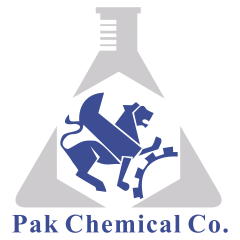Polyvinyl Chloride (PVC) has been a staple material in a multitude of industries for decades. However, while PVC has many advantages, it’s not without its limitations. To maximize its utility across various applications, it requires stabilization against heat and UV degradation. While powder stabilizers have traditionally been the norm, liquid PVC stabilizers are progressively making a mark, offering unique advantages that include easier handling and more uniform distribution. This article explores the nuances of liquid PVC stabilizers, their growing applications, and the benefits they confer.

The Need for Stabilization in PVC
PVC is inherently unstable when exposed to high temperatures and ultraviolet light. This instability can result in discoloration, loss of mechanical properties, and even failure of the end product. Absolutely, stabilizers play a crucial role in enhancing the durability and performance of PVC by counteracting the detrimental effects of heat and UV degradation. This enables PVC to fulfill its potential across a wide range of applications.
The Rise of Liquid PVC Stabilizers
Have garnered significant attention due to their distinct advantages over traditional solid or powder stabilizers:
- User-Friendly:. Being in liquid form, these stabilizers are easy to handle and transport.
- Quick Mixing:. They blend quickly with PVC, thus reducing the processing time.
- Uniform Distribution:. Ensure a more homogeneous distribution of the stabilizer throughout the PVC material, leading to consistent performance.
- Dust-Free Operation:. Liquid stabilizers do not create dust, reducing occupational hazards.
- Custom Formulations:. Indeed, the ability to tailor PVC to meet specific application requirements adds an extra dimension of versatility, making it adaptable to a variety of end-use scenarios.
Categories of Liquid PVC Stabilizers
Metal-Free Organic Stabilizers (Liquid PVC Stabilizers)
- Phosphite Esters:. Particularly useful in transparent and high-clarity PVC applications.
- Ester-based Stabilizers:. Offer good thermal stability and are favored in medical applications for their lower toxicity.
Metallic Stabilizers
- Calcium-Zinc:. Widely recognized for its environmental friendliness and effectiveness in both flexible and rigid PVC applications.
- Barium-Zinc:. Known for its excellent heat stability and its utility in color-sensitive applications.
Sector-Specific Applications
Renewable Energy
Are becoming critical in the production of PVC components used in solar panels and wind turbines, where high thermal stability is needed.
Marine Industry
In marine applications, PVC components have to withstand not just UV light but also corrosive saltwater conditions. Liquid stabilizers effectively preserve the integrity of PVC materials used in boats, docks, and other marine equipment.
Food & Beverage Industry
In PVC packaging for food and beverages, liquid stabilizers that meet food safety standards are used. These stabilizers must prevent migration and leaching, thereby ensuring product safety.
Sports Equipment
PVC is commonly used in sporting goods like mats, protective gear, and even artificial turf. Liquid stabilizers are used to prolong the life of these products, which often face harsh environmental conditions.
Advancements in Liquid Stabilizer Technologies
The development of multifunctional liquid stabilizers is a game-changer. These advanced formulations not only stabilize but also enhance other properties like flame retardance, improving the material’s overall performance.
Another advancement is in the use of nano-stabilizers, which are liquid stabilizers at the nanometer scale. These offer high efficiency even at low concentrations, thus cutting costs and reducing environmental impact.
Conclusion
The increasing adoption of liquid PVC stabilizers across multiple sectors is testament to their versatility and effectiveness. As industries push for greener, more efficient solutions, liquid PVC stabilizers stand at the forefront, offering a balanced combination of performance, ease of use, and environmental benefits.
As ongoing research continues to yield new and improved formulations, it is not an exaggeration to say that liquid PVC stabilizers are not just stabilizing PVC but also the countless industries that depend on this versatile material.
